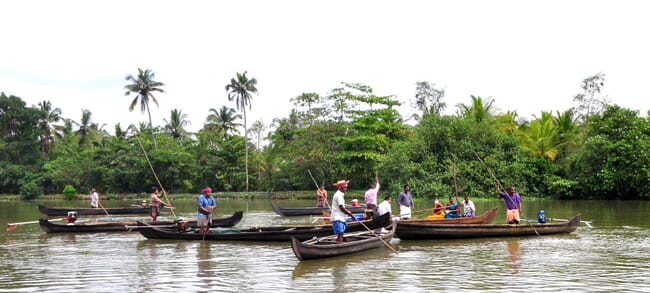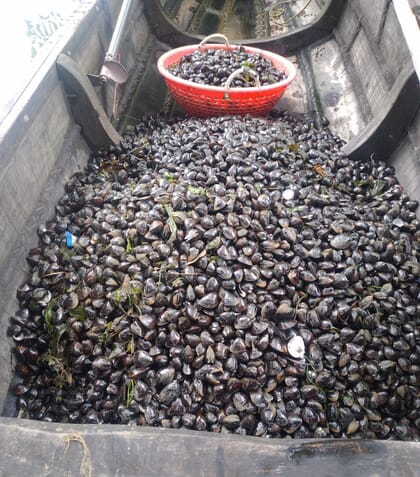
CMFRI’s initiative of relaying baby clams in various sites in the Vembanad facilitated increasing the clam production which in turn helped fishers harvest around 10 tonnes of clam per day from two areas of the Lake.
Aimed at boosting the clam fishery and enhancing livelihood options for the clam fishers in the region, the Molluscan Fisheries Division of CMFRI re-laid (stocked) baby clams after identifying suitable areas on the northern side of the Thanneermukkom Barrage. As part of this initiative, which was under a project on "Rejuvenation of Clam" taken up by the Fisheries Department of Kerala using the District Panchayat Scheme, approximately 200 tonnes of baby black clams were re-laid in Keecheri and Chakkathukadu areas of the Vembanad Lake under the technical guidance of CMFRI.
Producing nearly 1,500 tonnes
According to the CMFRI scientists, the initiative is expected to bring out a production of nearly 1,500 tonnes from these sites which is more than seven-fold of the re-laid baby clams.

The long undisturbed period of nearly two years has facilitated at least two spawnings followed by spat settlement leading to the establishment of a new black clam bed in the Lake and thus enhancing the clam resource, said Dr P Laxmilatha, Head of Molluscan Fisheries Division (MFD) of CMFRI.
Relaying of baby clams led to the establishment of the resource in these areas spreading around 20 hectares and helped fishers harvest adult clams with good growth rate, she said.
“The production of black clams declined from a peak of 75,592 tonnes in 2006 to 42,036 tonnes in 2019 in Vembanad Lake. Low production owing to multiple reasons and the pandemic have had cascading effect on clam fishers along Vembanad Lake”, Dr Laxmilatha added.
Reaping the benefits out of this, fishermen under the Keecheri Ulnadan Matsya Thozhilali Sahakarana Sangham collect the clams using canoes from re-laid locations and they sell clam meat for 150 per kg in the nearest market. Each canoe collects 450 kg of clams per day.
Dr Vidya R, Scientist of the MFD, CMFRI who led the project said that apart from increasing the production of clams in the area, the relaying helped clam fishers to sustain their livelihood during the tough pandemic period.
“Nearly 5,000 fishermen are involved in black clam fishery in the Vembanad Lake,” she said adding that the clam rejuvenation programme greatly helped increasing the production in the backwaters that provided a lifeline to the fishers depending on clam resources in the area.




